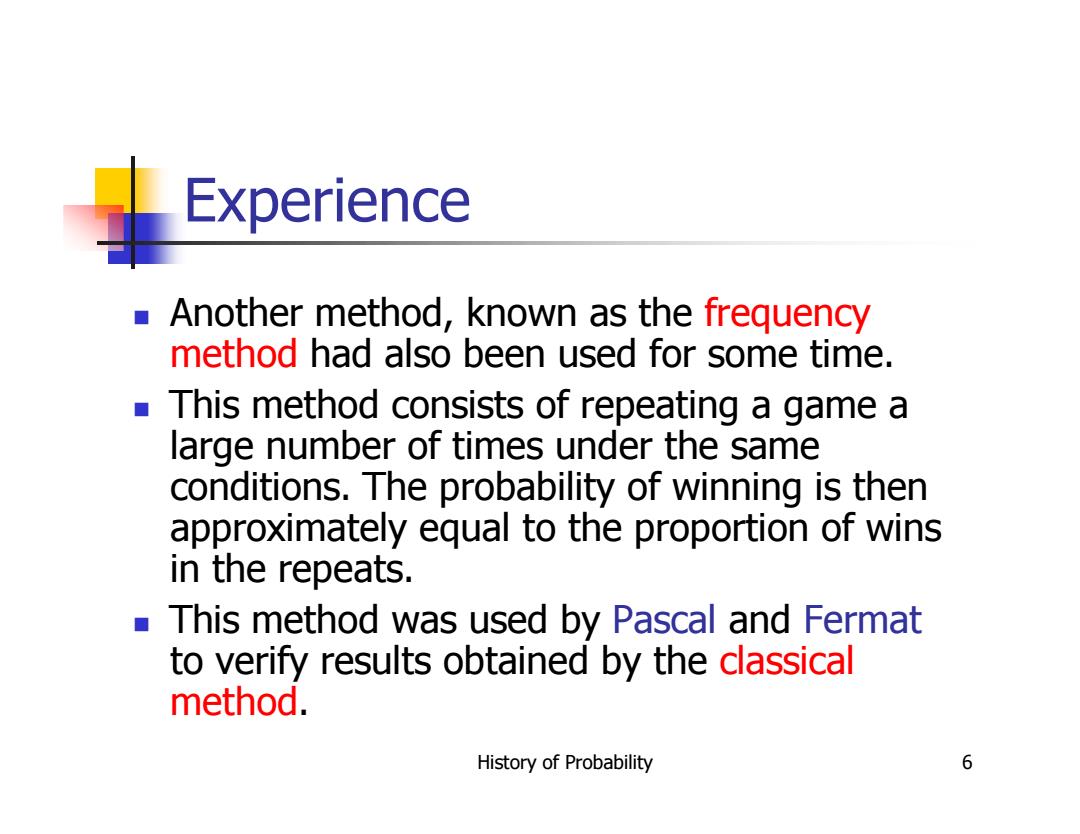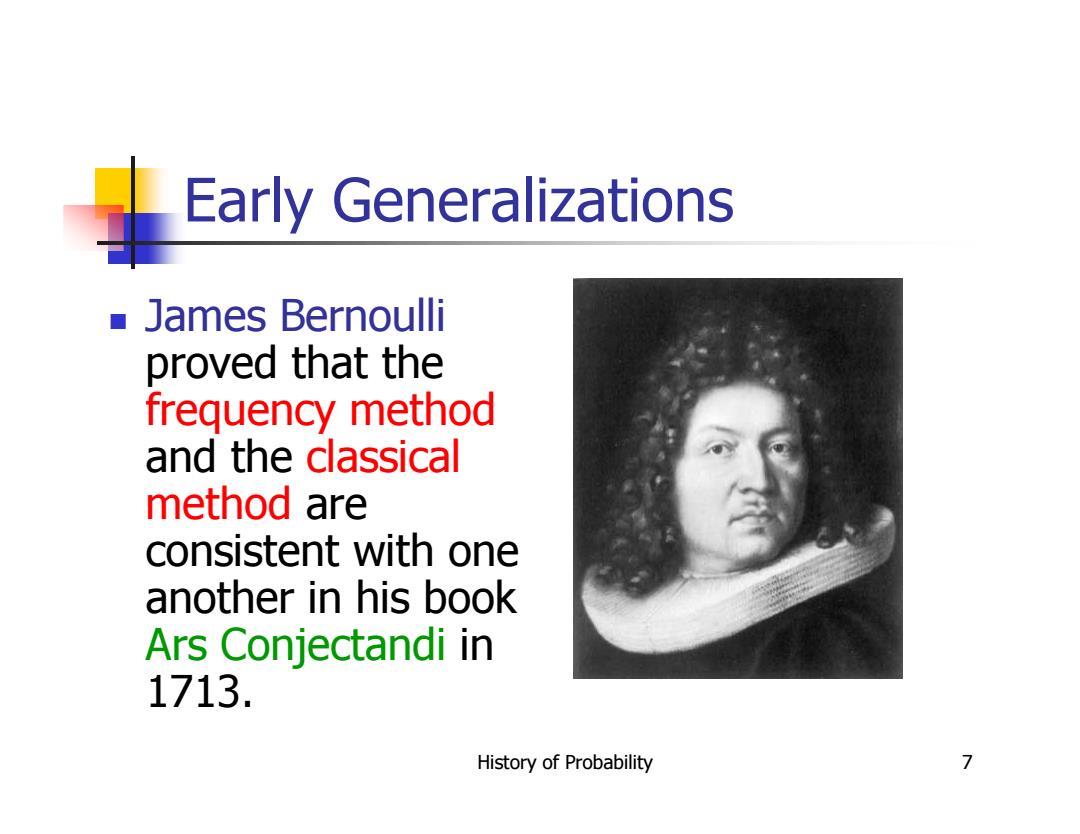
A Short History of Probability Dr.Alan M.Polansky Division of Statistics Northern Illinois University
A Short History of Probability Dr. Alan M. Polansky Division of Statistics Northern Illinois University

French Society in the 1650's Gambling was popular and fashionable ■Not restricted by law ■As the games became more complicated and the stakes became larger there was a need for mathematical methods for computing chances. History of Probability 2
History of Probability 2 French Society in the 1650’s ! Gambling was popular and fashionable ! Not restricted by law ! As the games became more complicated and the stakes became larger there was a need for mathematical methods for computing chances

Enter the Mathematicians A well-known gambler, the chevalier De Mere consulted Blaise Pascal in Paris about a some questions about some games of chance. ■ Pascal began to correspond with his friend Pierre Fermat about these problems. History of Probability
History of Probability 3 Enter the Mathematicians ! A well-known gambler, the chevalier De Mere consulted Blaise Pascal in Paris about a some questions about some games of chance. ! Pascal began to correspond with his friend Pierre Fermat about these problems

Classical Probability The correspondence between Pascal and Fermat is the origin of the mathematical study of probability. The method they developed is now called the classical approach to computing probabilities. The method:Suppose a game has n equally likely outcomes,of which m outcomes correspond to winning.Then the probability of winning is m/n. History of Probability 4
History of Probability 4 Classical Probability ! The correspondence between Pascal and Fermat is the origin of the mathematical study of probability. ! The method they developed is now called the classical approach to computing probabilities. ! The method: Suppose a game has n equally likely outcomes, of which m outcomes correspond to winning. Then the probability of winning is m/n

Problems with the Classical Method The classical method requires a game to be broken down into equally likely outcomes. It is not always possible to do this. It is not always clear when possibilities are equally likely. History of Probability 5
History of Probability 5 Problems with the Classical Method ! The classical method requires a game to be broken down into equally likely outcomes. ! It is not always possible to do this. ! It is not always clear when possibilities are equally likely

Experience Another method,known as the frequency method had also been used for some time. This method consists of repeating a game a large number of times under the same conditions.The probability of winning is then approximately equal to the proportion of wins in the repeats. This method was used by Pascal and Fermat to verify results obtained by the classical method. History of Probability 6
History of Probability 6 Experience ! Another method, known as the frequency method had also been used for some time. ! This method consists of repeating a game a large number of times under the same conditions. The probability of winning is then approximately equal to the proportion of wins in the repeats. ! This method was used by Pascal and Fermat to verify results obtained by the classical method

Early Generalizations James Bernoulli proved that the frequency method and the classical method are consistent with one another in his book Ars Conjectandi in 1713. History of Probability 7
History of Probability 7 Early Generalizations ! James Bernoulli proved that the frequency method and the classical method are consistent with one another in his book Ars Conjectandi in 1713

Early Generalizations Abraham De Moivre provided many tools to make the classical method more useful,including the multiplication rule,in his book The Doctrine of Chances in 1718. ■ The book was popular, eventually going through three editions. History of Probability 8
History of Probability 8 Early Generalizations ! Abraham De Moivre provided many tools to make the classical method more useful, including the multiplication rule, in his book The Doctrine of Chances in 1718. ! The book was popular, eventually going through three editions

From Games to Science Throughout the 18th century,the application of probability moved from games of chance to scientific problems: Mathematical theory of life insurance-life tables. Biological problems what is the probability of being born female or male? History of Probability 9
History of Probability 9 From Games to Science ! Throughout the 18th century, the application of probability moved from games of chance to scientific problems: ! Mathematical theory of life insurance - life tables. ! Biological problems - what is the probability of being born female or male?

Applied Probability Pierre-Simon Laplace presented a mathematical theory of probability with an emphasis on scientific applications in his 1812 book Theorie Analytique des Probabilities. Unfortunately,Laplace only considered the classical method,leaving no indication on how the method was to be applied to general pro 10
History of Probability 10 Applied Probability ! Pierre-Simon Laplace presented a mathematical theory of probability with an emphasis on scientific applications in his 1812 book Theorie Analytique des Probabilities. ! Unfortunately, Laplace only considered the classical method, leaving no indication on how the method was to be applied to general problems